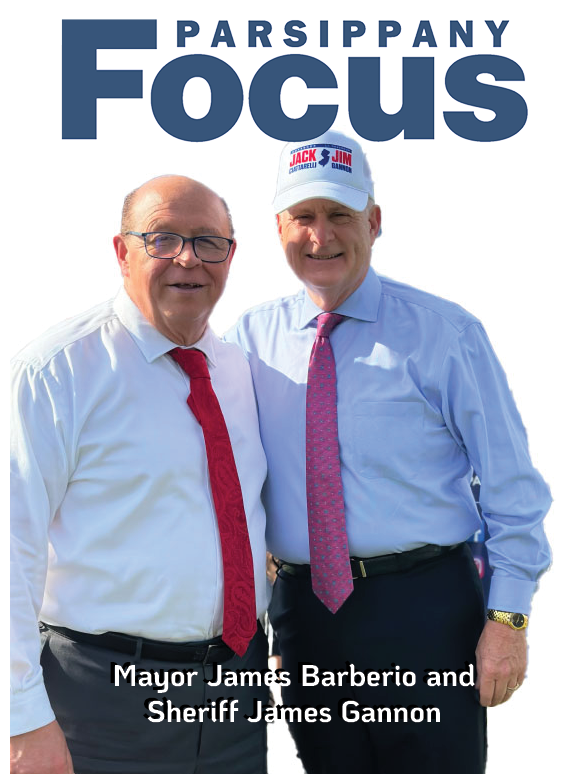MORRIS COUNTY — On June 5, 2017, the Morris County Correctional Facility (MCCF) opened a new Substance Abuse Housing Unit that is appropriately referred to as the “Hope Wing.”
The focus of this unit was designed to help inmates who present substance abuse difficulties to address their addiction through group and individual interventions.
Participating inmates voluntarily request to enter the Hope Wing and must agree to comply with the regimented weekly schedule. Morris County Correctional Facility substance abuse counselor, Michael Dunleavy, MSW, LCSW, LCADC, oversees the clinical program of the Hope Wing.
Addiction manifests as a multifaceted problem, it requires a multifaceted approach to achieve the highest possibility for successful results. The professionals of various disciplines who are already employed within the facility, as well as a faithful, dedicated, and selfless team of community volunteers, facilitate the programming provided to the inmates on the Hope Wing.
“It was a significant realization when it occurred to us that we have 24/7 access to a population of individuals in the throes of addiction who need help and support. It was practically seamless to see how we could dedicate an entire section of our correctional facility for these analogous individuals for the purpose of individual recovery and recovery support. I am proud of our staff who work tirelessly on the Hope Wing for the benefit of others, and I am proud of our fellow citizens who work tirelessly to change the trajectory of their lives. I applaud them and the success of the Hope Wing and I look forward to celebrating many more anniversaries and individual successes,” Morris County Sheriff James M. Gannon said.
Special attention to physical care is addressed on the Hope Wing. Self-care is vital to recovery. Often an underlying issue for an individual suffering from a substance abuse problem is the “self-medicating” of a medical or psychiatric condition rather than seeking appropriate treatment from a professional.
The medical care and psychiatric care provided at the MCCF is vital to maintaining abstinence and sustained recovery. A particular benefit afforded to participating inmates is the opportunity to receive medication such as Vivitrol prior to release to aid in the recovery process.
One of the most important components of the Hope Wing model are the groups and meetings facilitated by members of the “recovering community”. These volunteers, who are in long term recovery from addiction, give in-person testimony that ongoing recovery is possible and sustainable.
They demonstrate that the Hope Wing participants have the ability to be acceptable, responsible, and productive members of society and successfully integrate back into the community. These volunteers are members of groups such as Alcoholics Anonymous, Narcotics Anonymous, and CARES (The Center for Addiction Recovery Education & Success).
While on the Hope Wing, participants engage in scheduled groups which address a variety of aspects that are imperative for ongoing recovery.
Inmates are exposed to components of fundamental topics such as relapse prevention, anger management, stress management, improved repertoire of coping skills, identification of triggers, identification and revision of thought patterns, inaccurate beliefs, family roles, healthy relationships, codependency, guilt, shame, personal values, ambitions, and self-esteem. Through individual sessions, Hope Wing participants can discuss addiction and recovery concerns that the inmate may find too sensitive to share in a group setting.
“This month in 2017 the Hope Block was opened. It’s been seven years already, and I always tell people that I’m very honored and thankful to be the everyday Officer on this unit that was created by Sheriff Gannon. I hope we have many more years of growth and success in the future to come and I’d like to say thank you for everything,” Morris County Correctional Police Officer Kevin Johnson said.
Faith and spirituality are important individual components in recovery. The MCCF Chaplain helps the inmates with ways to utilize faith and spirituality as an integral facet to address addiction.
The Chaplain assists inmates in rebuilding family ties that have been broken as a result of the inmate’s addiction and criminal activity. In addition, the Chaplain plays an integral role in advocacy, such as connecting inmates with legal, social, and political
avenues for change.
MCCF Educators administer the GED program at the facility and work with inmates to develop the skills necessary to seek and maintain employment upon their release.
Another service offered to participants of the Hope Wing, as well as other MCCF inmates, is the Morris County Reentry Program. The Morris County Reentry Coordinator provides intensive reentry case management to individuals being released from the Morris County Correctional Facility into the community.
The Reentry Coordinator provides linkage to concrete services across multiple life domains, including, but not limited to, housing, General Assistance, SNAP and Medicaid, obtaining identification (County ID card, birth certificate, etc.), and other social services. When reentry program participants are released from Morris County Correctional Facility, they receive continuous post-release case management and advocacy to assist them in overcoming barriers to success.
“While I am certainly proud to have had the blessing to oversee the Hope Wing, I am most proud of the voluntary Hope Wing participants over the last 7 years who have taken advantage of the opportunity to create a change in their life,” said Michael Dunleavy, Hope Wing Coordinator. “Although security and safety are the number one priority of the facility, the collaboration and culture on the Hope Wing is of prime clinical concern. The challenge is to create an atmosphere and environment on the Hope Wing that is as emotionally safe as possible to foster healing. I often state to the inmates on the Hope Wing that ‘they are the Hope Wing, not the housing unit where they temporarily reside’. This is important for them to know this.”
At the opening of the Hope Wing, the initial population was 5 inmates. Since then, the Hope Wing has had over 300 inmates pass through the program.
The desire is to continue the path that has been started and increase the services offered to those who qualify and desire these services. The outcomes have significant impact in the fight against addiction and recidivism in Morris County and the State of New Jersey.
Here are some quotes from participants residing and healing in the Hope Wing. Many former Hope Wing participants have been in contact via phone and email.
Here are some things that have been expressed:
- “In November, I will have three years clean.”
- “I got married a year ago, and we have a beautiful one-bedroom apartment.”
- “I am now the daytime manager at my job.”
- “I currently attend CCM online part-time.”
- “I have a good support system.”
- “I’m in touch with my son and my dad.”
- “I’m grateful to you guys and the Hope program. I believe in that program. The Hope Wing has played a significant role in what I have done, where I am now, and where I am going.”
- “Thank you so much for giving me the tools to stay out (of jail) and build a better life for myself. I thank you for walking me through everything and going above and beyond. It’s because of the Hope Wing, and everyone involved that I lasted home for longer than my record, 6 months out of jail since 2007. I’m going on my 2nd year home. I have a job for two years; I start back as soon as I finish this school semester. I’m in college! I’m sober and happy. Thank you.”











